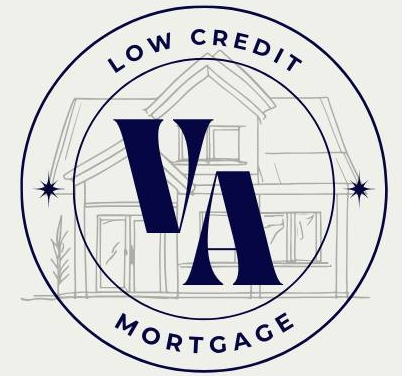How Chapter 13 Bankruptcy Affects VA Loan Eligibility
A VA loan is a mortgage option available to veterans, service members, and their eligible spouses. Backed by the U.S. Department of Veterans Affairs, this loan program offers various advantages, including no down payment, competitive interest rates, and no private mortgage insurance. While these benefits are highly attractive, bankruptcy proceedings, particularly Chapter 13, can create challenges in the application process.
Filing Chapter 13 During an Existing VA Loan
If you already have a VA loan and file for Chapter 13 bankruptcy, you will be allowed to keep your home as long as you stay current on the mortgage payments and meet your repayment obligations under the bankruptcy plan. The court will approve the repayment plan that includes your mortgage, and you may be required to demonstrate that you can maintain mortgage payments alongside other debt repayments.
Applying for a VA Loan During Chapter 13 Bankruptcy
It’s possible to apply for a VA loan while still in Chapter 13 bankruptcy, but there are specific conditions:
· Approval from Bankruptcy Court: Since your finances are under the supervision of a bankruptcy trustee, you will need court approval before taking on new debt, including a VA mortgage loan.
· 12 Months of Timely Payments: You must demonstrate that you’ve made at least 12 months of on-time payments on your Chapter 13 repayment plan. This shows financial stability and responsibility.
· VA Lender Requirements: Although VA loan guidelines don’t impose a minimum credit score, lenders often have overlays that require a certain credit score. After Chapter 13, many lenders may expect a credit score of at least 620 or higher.
· Debt-to-Income Ratio: Lenders will evaluate your debt-to-income (DTI) ratio to ensure you can manage both your Chapter 13 repayment obligations and a mortgage. High DTI ratios can limit your ability to secure a loan.
After Chapter 13 Bankruptcy: Reestablishing VA Loan Eligibility
When Can You Apply for a VA Loan After Chapter 13 Bankruptcy?
The good news is that once you’ve completed your Chapter 13 repayment plan and received a discharge from the bankruptcy court, you are no longer under the restrictions of bankruptcy. You can apply for a VA loan immediately after the discharge, although some lenders may still have specific waiting periods before they will approve the loan.
The critical factor here is showing financial stability after bankruptcy. Lenders will examine your recent financial history and creditworthiness closely.
Improving Your Credit Score Post-Bankruptcy
While VA loan guidelines do not specifically require a minimum credit score, most lenders require a certain level of creditworthiness. After Chapter 13 bankruptcy, your credit score may be lower, but you can take steps to improve it:
· Make all payments on time: Consistently paying your bills and debts on time is one of the most significant factors that influence your credit score.
· Monitor your credit report: Keep track of your credit report to ensure there are no inaccuracies that may affect your eligibility for future loans.
· Build credit responsibly: Consider using credit-builder loans or secured credit cards to slowly rebuild your credit after bankruptcy.
VA Loan Approval Challenges After Bankruptcy
Potential Obstacles You May Face
Although the VA provides flexibility in offering loans to veterans and service members, bankruptcy presents challenges. Lenders may view you as a higher risk, requiring higher interest rates or additional documentation to prove financial stability. Some obstacles you may encounter include:
· Higher Interest Rates: Lenders may offer less favorable terms to borrowers with recent bankruptcy filings, including higher interest rates.
· Stricter Underwriting Requirements: Even though the VA loan program itself does not impose harsh restrictions after bankruptcy, individual lenders may apply stricter standards, such as a waiting period after your bankruptcy discharge or a higher required credit score.
· Increased Documentation: Expect to provide thorough documentation about your bankruptcy, your Chapter 13 repayment plan, and your current financial situation.
Overcoming These Obstacles
To increase your chances of VA loan approval, it is essential to:
· Maintain stable employment: Consistent income is crucial for lenders assessing your ability to manage a mortgage.
· Keep low debt levels: Reducing your debt load can improve your DTI ratio, a key metric lenders use to assess risk.
· Showcase financial responsibility: Demonstrating that you have responsibly handled your Chapter 13 repayment and managed your finances well post-bankruptcy will strengthen your case.
Conclusion: Is a VA Loan Still an Option After Chapter 13?
While Chapter 13 bankruptcy may complicate your ability to secure a VA loan, it does not make it impossible. With the right steps, including on-time repayment of your Chapter 13 plan, court approval, and maintaining good financial habits, you can still qualify for a VA loan. The key to success is demonstrating financial stability and responsibility after bankruptcy.
As with any financial situation, it’s important to speak with lenders and VA loan specialists to understand your specific circumstances. A clear plan, careful financial management, and attention to lender requirements can make the path to homeownership a reality, even after Chapter 13 bankruptcy.

